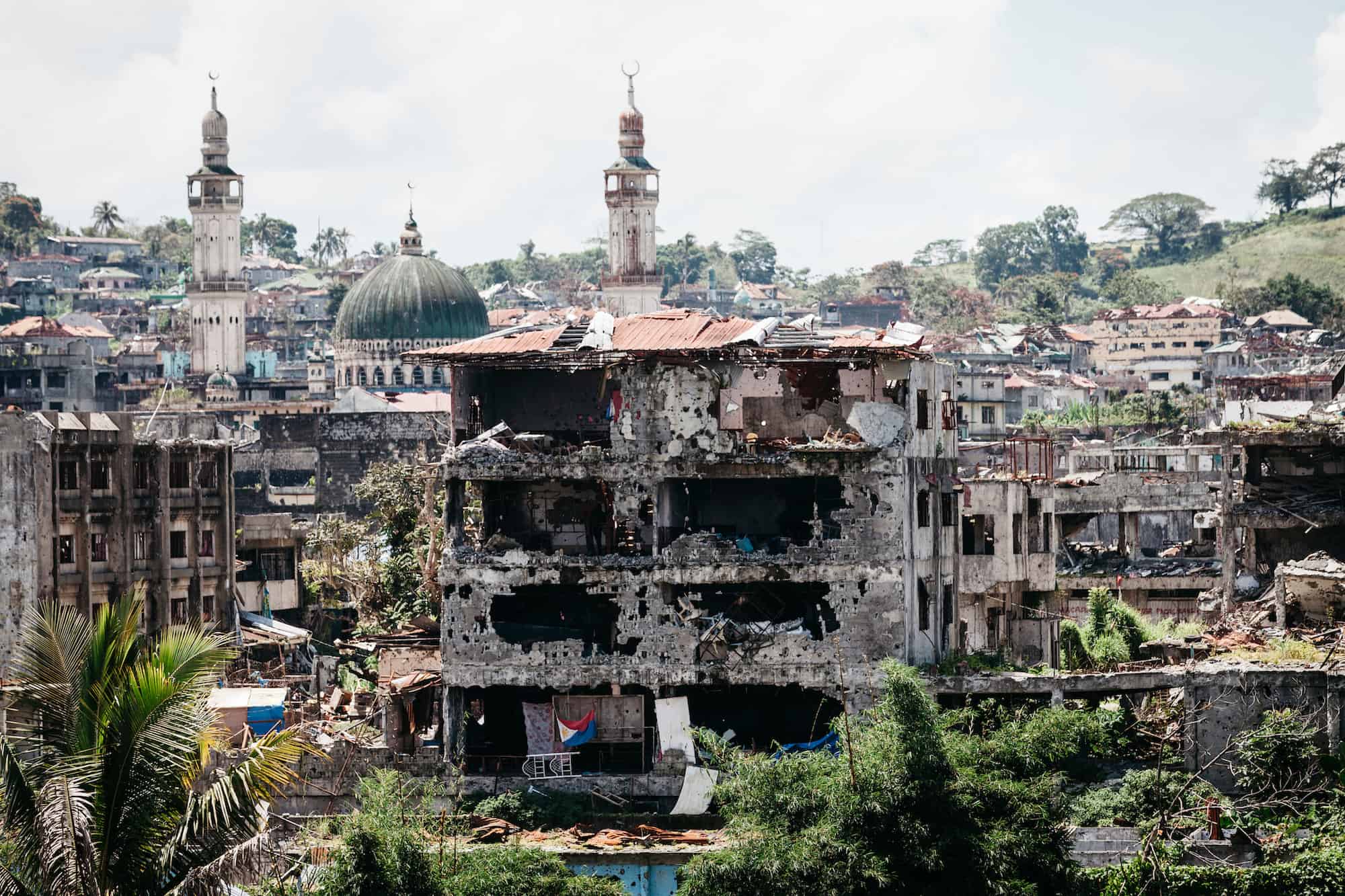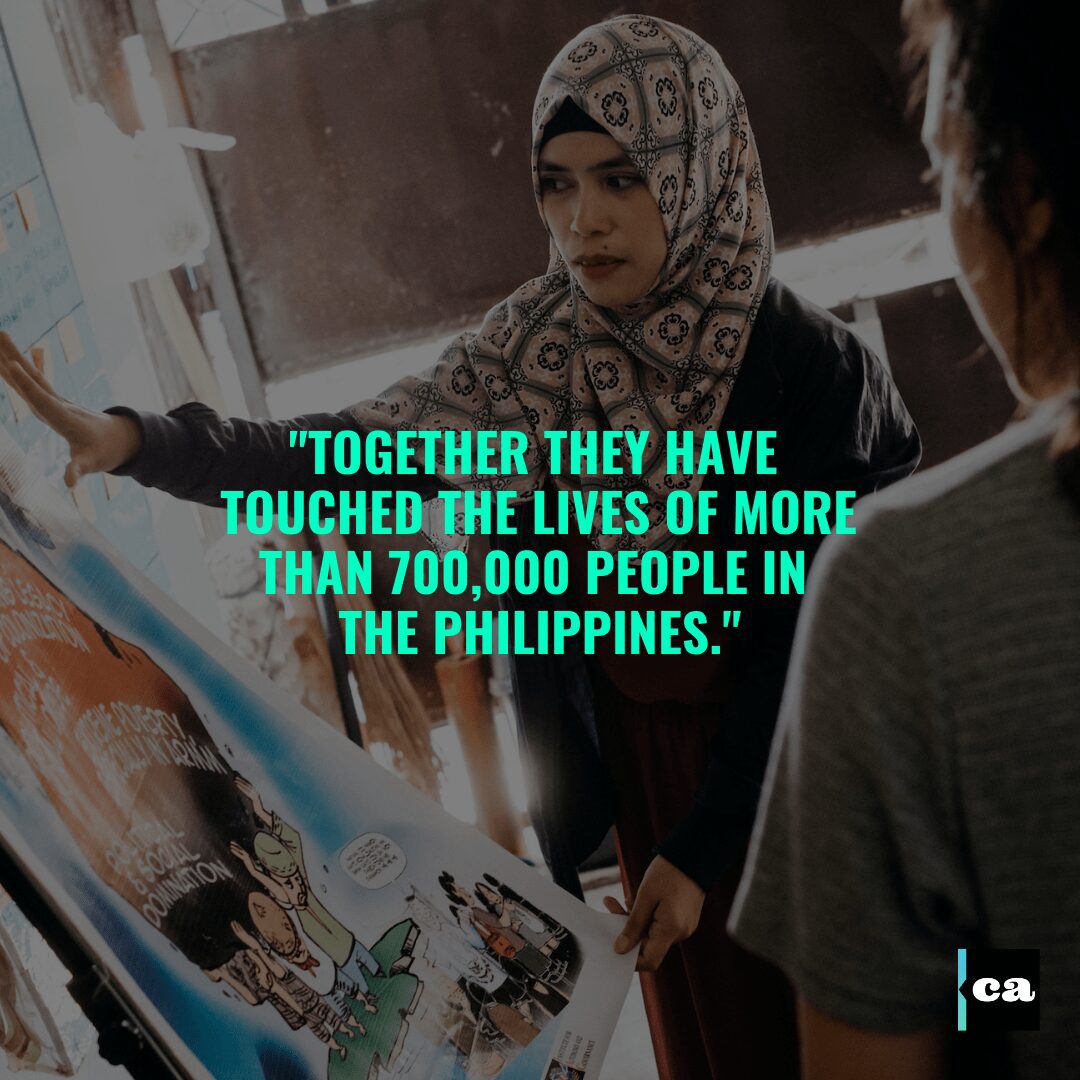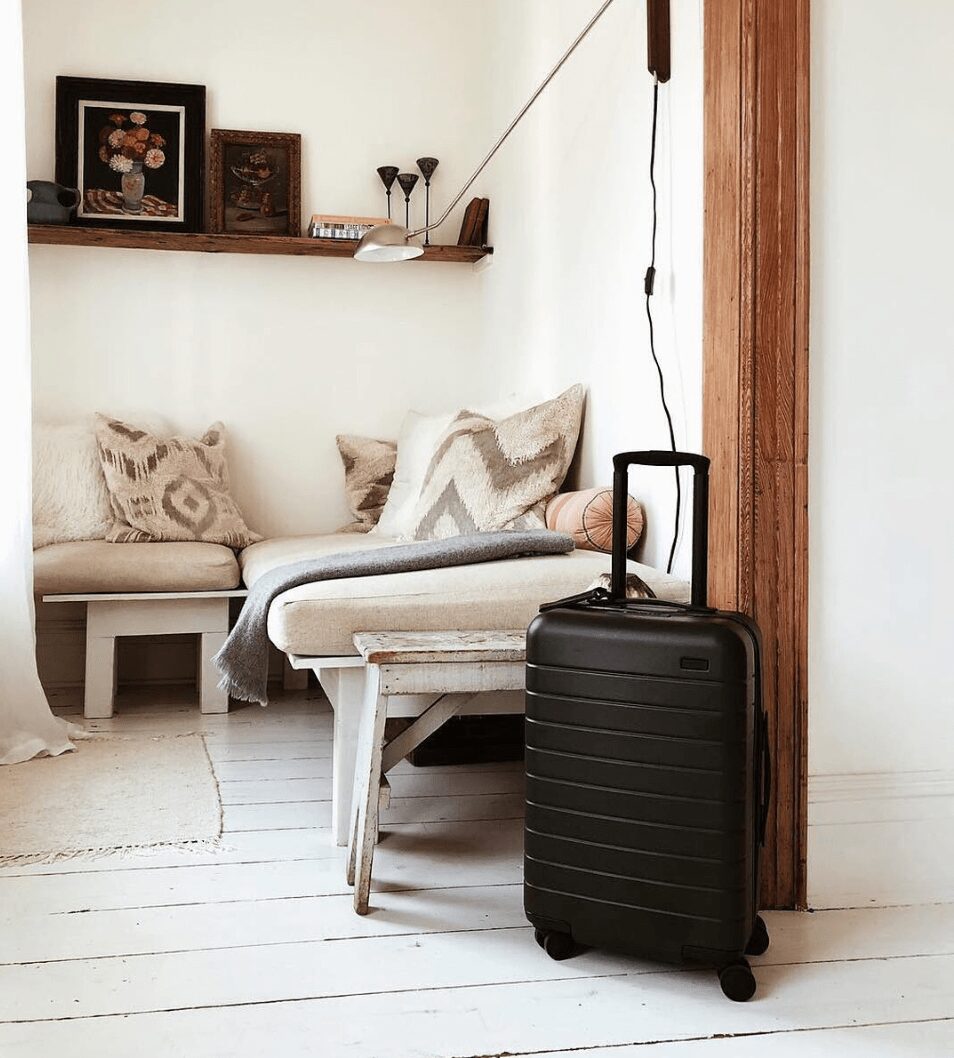featured photo: Asmin A. Monib a volunteer at Kapamagogopa Inc (KI) working at their offices in Iligan, Mindanao, Philippines, 17 May 2018. Photo by Greg Funnell
Away has supported the work and mission of Peace Direct since we were founded, which means if you’ve bought anything from Away—from a suitcase to a sticker—you’ve contributed too. So wherever you go, you’re making the world a better place, one place at a time.
Mindanao doesn’t mean much to many people outside of the Philippines. Though the island does have the white-sand beaches and aquamarine lagoons that foreigners flock to the rest of the archipelago for, Mindanao itself is not a tourist destination. To Filipinos, however, Mindanao can mean a lot—and not all of it good. Many from the northern part of the country buy into stereotypes that the island is dangerous: plagued by kidnappings and a breeding ground for terrorism.
These fears are largely overstated the vast majority of the island’s population of 21 million has never been affected by violence—but not entirely unwarranted.
History of Mindanao
Mindanao is home to a sizable Muslim minority that has been historically marginalized by the government of this predominantly Catholic country. In response to what they perceive as ongoing discrimination, a coalition of rebel groups united in the 1970s to form a separatist movement that demanded increased autonomy for Bangsamoro, a Muslim nation.
Most members of these groups put down their arms in 2014 when a peace agreement was signed with the Philippine government, but those unsatisfied by the government’s commitment to devolution became more alienated, creating a fertile ground for recruitment by the Islamic State.

In May 2017, a war between militants who pledged allegiance to ISIS and the Philippine Army destroyed the majority-Muslim city of Marawi and left hundreds of thousands of people displaced. The fighting didn’t end until that October; one year later, the city feels like a ghost town, open only to the military who are working to clear unexploded ordnance and skeletal remains.
It can be easy for most of us to mistakenly assume that the people we see on the news walking miles to flee from violence, or cramming several families into a tent in temporary camps have never lived lives similar to ours. The reality is that the effects of conflict are indiscriminate. War doesn’t just affect the poor or those in rural areas, but those who live in bustling, modern cities—like the ones that are familiar to us, and like the one Marawi once was, too.
The work in Marawi
While Marawi is barely on the radar of international NGOs, local organizations like Peace Direct’s in-country partner Kapamagogopa Incorporated (KI) have been volunteering in the region well before last year’s violence.
KI is sponsoring camps for the people of Marawi who have been displaced by the conflict, and developing programs to support those who lost their businesses and livelihoods in the war.
Most critically, they are continuing the work they have done for decades—building trust between the Muslim minority and Christian majority in the Philippines, to ensure that the societal divisions that enabled ISIS to take hold in the first place do not deepen further.

Kapamagogopa means ‘sharing or helping others’ in Maranao. The organization was started by Mariam Barandia, a civil engineer who lived and worked in Mindanao and left a career in banking to found the organization, so that she could create a means to provide support for Muslims who were experiencing the same prejudices she had as a minority in the region.
The organizations impact
What’s especially profound about the work KI does is that, while many of them were once residents of Marawi whose lives have been deeply affected by the conflict, they continue to support those who are in even more need than them, as they process their own experiences and rebuild their own lives.
I met Ashmin, a Community Organizer who works on KI’s Women’s Empowerment Program, during a recent visit to Marawi. She spends her days in the field, visiting rural areas on the outskirts of Marawi where ISIS heavily recruited, providing trainings and support to groups of women who are working to reduce the potential for conflict in their communities.
Ashmin and her team have helped the groups start agricultural and sewing cooperatives, provided them with counseling and mentoring, and given them tools to identify the signs of alienation or radicalization to reduce the potential for tension or conflict to escalate further.
It is only after spending a full day with Ashmin that I realized that she and her family were also directly affected by last year’s conflict. We were trading beauty tips—mesmerized by her bright blue eyelashes, I noted down her go-to mascara brands—when she explained that she’d recently had her braces removed.
Spending money on cosmetic dental treatments no longer makes sense, now that her family needs to save up for a new house, she told me. What had happened to her old house? It was razed during last year’s war.
Ashmin explained how the siege began while she was at work in nearby Iligan City, and described the agonizing 24 hours during which she coordinated a way for her family, still in Marawi, to join her.
Her mother and sister locked themselves in the bathroom of their house to avoid being spotted by the ISIS combatants that filled the streets. When a temporary ceasefire was declared that evening, the family escaped. Though it usually takes less than one hour, their drive from Marawi to Iligan City that night took over eight. They eventually arrived safely.
Ashmin is one of nearly 60 women who have contributed hundreds of thousands of voluntary work as peacebuilders of KI. Together they have touched the lives of more than 700,000 people in the Philippines.
I heard the Arabic word sabr, or perseverance, over and over again in my conversations with those who survived the Marawi siege. It’s an inspiring approach to processing loss, but we can offer the people of Marawi more than admiration for their strength and resiliency.
We can acknowledge the gravity of what they have experienced, and support those who are working to ensure that they can move beyond simply enduring, toward a life beyond the tragedy.

Read more about Away’s work with Peace Direct in their print and digital magazine, Here.
Related Post:








